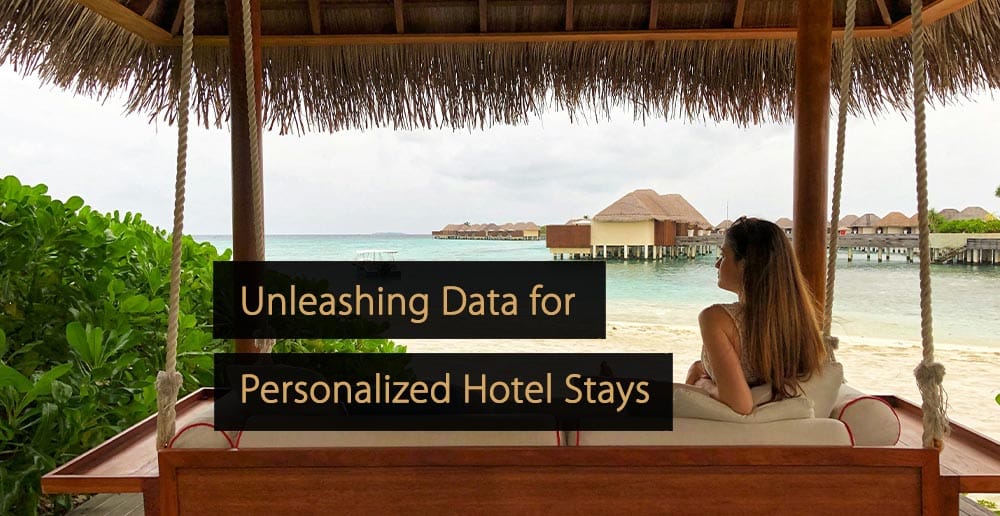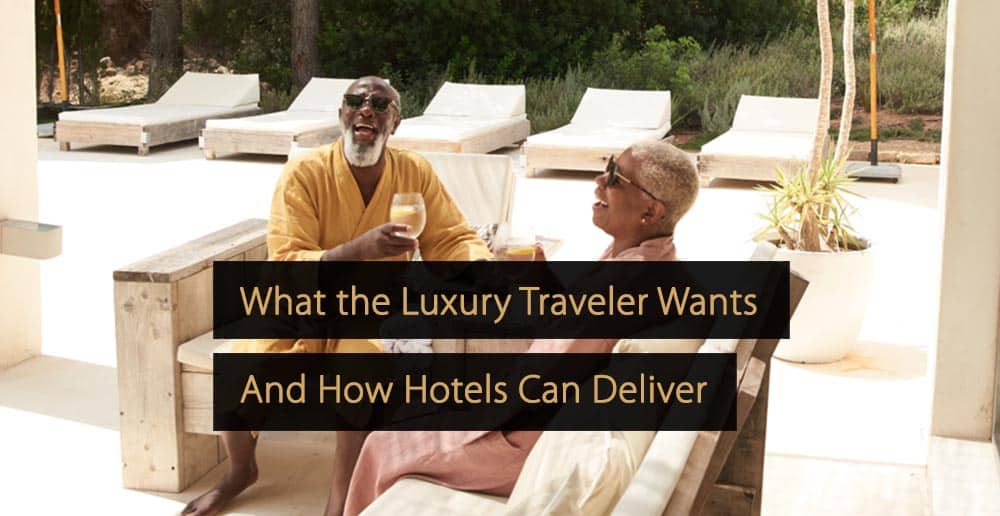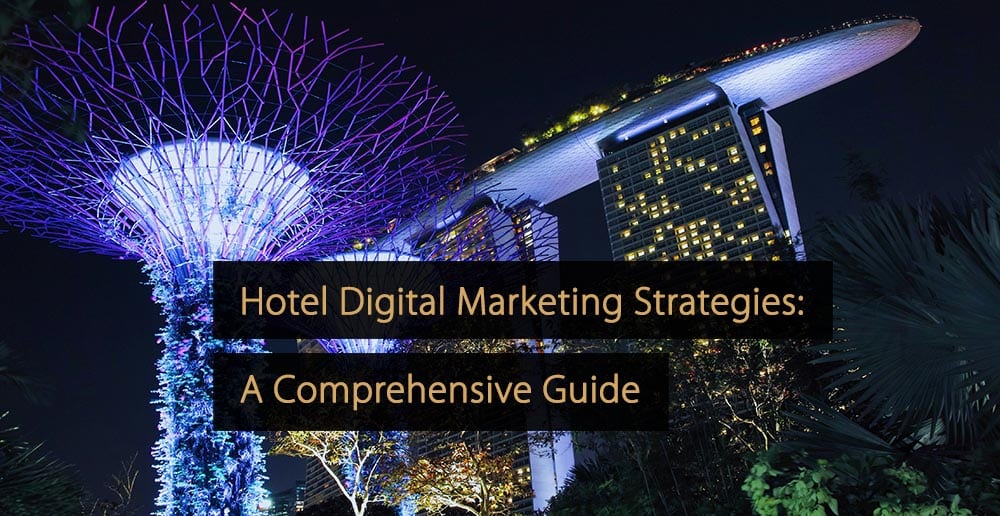Question for Our Hotel Marketing Expert Panel
Today’s guests are growing increasingly aware of sustainability efforts in travel. What marketing messages best convey a hotel’s sustainability efforts? (Question proposed by Alessandro Inversini)
Industry Expert Panel
Our Industry Expert Panel exists out of professionals within the hospitality & travel Industry. They have comprehensive and detailed knowledge, experience in practice or management and are forward-thinking. They are answering questions about the state of the industry. They share their insights on topics like revenue management, marketing, operations, technology and discuss the latest trends.
Our Marketing Expert Panel
- Susanne Williams – Performance and Revenue Director, Journey Hospitality
- Daphne Beers – Owner, Your-Q Hospitality Academy
- Stephanie Smith-Sparks – Founder, Cogwheel Marketing
- Tamie Matthews – Revenue, Sales & Marketing Consultant, RevenYou
- Nicole Sideris – Founder & Prinicipal Consultant, X Hospitality
- Tim Kolman – Commercial Strategy Expert, three&six
- Max Starkov – Adjunct Professor Hospitality Technology, New York University
- Moriya Rockman – Chief of Marketing, Smiling House Luxury Global
- Linda Bekoe – CEO, APLBC
- Reshan Jayamanne – Digital Marketing & Sales Strategist, Bnb Optimized
- Luminita Mardale – Director Of Marketing And Business Development, Vienna House
- Jolien Alferink – Hotel Marketing Consultant, Orange Hotel Marketing
- Grazia Dell’Aquila – Hospitality Consultant, IAMGRAZIA
- Jacopo Focaroli – CEO & Founder, The Host
- Mattias Dybing – Founder and Director, Nuvho | Hotel Services & Management Company
- Ask Our Panel a Question
- Join Our Expert Panel
“I opened up a discussion in the office around this topic. Sustainability and the travel industry are not comfortable bed fellows so it was an interesting debate.
We all care about the efforts hotels are making and the decisions they make that show how they care and align with their guests’ values. Do we truly understand our guests’ values in this regard? Being authentic and transparent is the place to start… but messages must be clear, easy to digest and align with your guests.
So it is a good idea to ensure your hotel is partnered with like-minded charities and organisations that resonate with your guests. Sustainability initiatives should be conveyed regularly as part of your business as usual newsletters, social media posts and on collateral around the hotel. Set your carbon neutral intentions and be consistent with your messaging.
However, it is also nice to include this as part of bigger campaigns, for example, during sales like Black Friday or Christmas you could plant a tree / donate for every £xxxx amount of revenue generated.
Giving back to good causes and showcasing initiatives to sustainable causes also provides for the hotel as it encourages more sales.”
“Before you start focusing on what the message should be, in my opinion, you should have a look at some earlier steps first.
- Is the sustainability message in line with your purpose, vision and strategy? Or is it a freight train that you think you need to jump on? If there is no strategy behind it, don’t waste your time on it.
- Look at your target audience. Are THEY focused on sustainability? Or do you only THINK they are? Have you done the research?
- Within sustainability, WHAT is it that they find important? There are so many ways of creating sustainability and you cannot do everything, so focus on the things that your target audience wants you to focus on.
- What is the goal of using sustainability in your marketing messages? Is it informing, building a community or hardcore sales?
If you have all of this clear, it then becomes evident what type of message will contribute to your strategy and help you to attract the right guests.”
“Sustainability needs to be localized to be truly effective, then carried throughout operations, sales and marketing. It takes community involvement and these efforts cannot be done within a silo of the hotel. One hotel we work with, the Renaissance Asheville, has bee boxes on the roof that is serviced by a local organization.
Going a step farther, they have a section of the property designated and certified as a pollinator garden. Then, they created a learning piece for the front desk to share with guests on how they can further their efforts to save the bees at home. The messaging is also communicated on social media and other channels via the sales team.”
“Your marketing message will depend on the sustainable options you are investing in. Some items can be turned into super fun social media posts, like replacing your showerheads, whilst others, like electric car charging stations, can be marketed on websites that EV owners use for planning journeys.
Whatever you choose to do, the message must be that we are doing this to improve our own footprint in the world and that we are the owners of the change rather than jumping on the latest trend to cut costs and save on time. Looking at you, “hang up your towel to save the world” stickers!
To summarize, I think we need to be on top of all the above-mentioned elements to be able to forecast as accurately as possible.”
“Communicating the hotel’s actions offers the knowledge so that potential guests and companies can identify your awareness and actions for sustainability. I found it best to adapt the messages depending on your target market and their corresponding communication and distribution channels.
I have found the best marketing messages for sustainability are through storytelling and being creative. Writing a story based on the data and goals achieved and making a hotel’s marketing extra efficient. Travellers like to know those special things about a place, its inhabitants, and the company that provides their services and/or products. Going for a simple “We look after the environment” message almost feels like a necessity to write without validation. But taking a step further and the values, the purpose, the team behind it, the actions taken, and their importance to the hotel, solidifies conviction.”
“2 words: Keyless Entry.
This not only addresses the issue of contactless, but also addresses the reduction of plastic initiatives for hotels. (Also, selfishly I am one who constantly loses keys, so this will reduce the number of trips I take to the front desk!).
Another favorite of mine (because I love to eat) is locally produced ingredients on your menus! Who does not love, and will likely pay more for, Farm to Table! Local sourcing helps reduce emissions from limiting the transportation distance and additionally will help ease supply chain issues.”
“The best channel to convey to the outside world your property’s sustainability initiatives is via Content Marketing. Content Marketing is all about telling your story, explaining your value proposition and sustainability efforts and achievements. Content Marketing has always been an integral and increasingly important part of the hotel digital marketer’s toolbox. It engages and entices the travel consumer in the Dreaming and Planning Phases and creates ready-to-book sustainability-conscious customers for the Booking Phase of the digital customer journey.
You can promote your property’s sustainability efforts via two types of Content Marketing:
- B2C Content Marketing and all of its formats: website content, SEO, social media, hotel and travel blogs, PR, influencer marketing, etc. – allows smart hotel marketers to engage leisure travelers, family travelers, seniors, couples, LGTB, unmanaged business travelers, leisure group organizers, social event and wedding planners, etc.
- B2B Content Marketing allow hotels to reach corporate travel managers, corporate group planners, conference and convention organizers, company decision makers, etc.”
“It’s very important that your messages that promote sustainability will meet the guest before the booking, and also during the stay. Among the hotel pictures, in all different channels and websites, it’s highly recommended that a visual with a declaration of the hotel’s effort will be shown.
This message should be spread through all social media as well. When the guests arrive at the hotel, they should see the message in common areas and in their bedroom.”
“It is important for the property to have information on sustainability available on the website as well as part of the booking confirmation and all marketing channels. All to often you find that hotels or apartments have this information hidden on the website. I still feel that we have a long way to go in hotels to really address this issue of sustainability and not just make it a box-ticking exercise.”
“As a former architect, sustainability is something that always excites me to see. For travellers, this is becoming increasingly important as this is the main topic in the media with companies, government sectors and boards shifting their focus on climate change. For guests, this is part of the experience. Take note of this. It becomes part of the experience. It is the uniqueness of the locations, their stay, and forms part of the narrative they will discover on the ground and tell their community.
To be really practical, marketing messages should not be in the form of just words of text about sustainability. Show people the sustainability measures taken, take them on a journey of how you do something, grow your own produce to go from garden to table and so on. Make this a part of your online experience that entices and inspires them to book with you for the good you’re doing for the world.
Travellers these days may love sustainability, but in reality, they are in love with the idea of total immersion in an experience that makes them feel like they have ‘saved the world’ and had fun at the same time. From your website to your socials (and even ads) – show, don’t just tell. Once more, sustainability, eco-friendly and pro-nature messaging works when produced correctly because it taps into the human psychology of doing something good for the world.”
“According to Green Business Bureau, Businesses across the board are shifting to sustainability to lessen their impact on the planet and meet consumer demand. It is estimated that 87% of consumers consider the environmental and social impact of products and manufacturing processes when they buy. In the hotel industry, we see a high demand for all sustainability measures that we are taking on in the RFP’s request. We see that large companies choose to accommodate guests only in hotels with clear sustainability programs, where the level of carbon dioxide is measured, where the energy is used sees, the waste diversion is measured.
At Vienna House Easy Airport Bucharest we use only 100% green energy, control the level of carbon dioxide, and monitor water consumption. We have a clear recycling program, we have eliminated plastic in a very large proportion, and we have taken all the necessary measures to reduce energy consumption. We promote these measures through direct messages to our guests, in the conference rooms but also in the bedrooms, where the guests find a bag made of recyclable material. If they have a long stay and do not want a daily room clean, thereby helping us in our “Never Stop Caring” program, they will receive a small gift from us if they leave the bag hanging outside the door.”
“When a hotel shows personal involvement in sustainability initiatives, for instance showcasing team members participating in a charity initiative via their social media channels, their commitment becomes more real and credible.
Another way is to highlight the results of your hotel’s sustainability initiatives and ensure this message is being seen early on when browsing the website to support conversion. Research what it takes to win sustainability industry awards and remember to also educate your trade partners, and update other channels.
In any case, sustainability actions should firstly be a result of a core belief. There’s a lot of window dressing around CSR, which makes the consumer more sceptical about marketing messages around this topic.”
“People are becoming increasingly sensitive to environmental and social issues, in particular, the new generation. Hotels must have transparent and consistent communication to raise awareness and promote a culture of sustainability both internally and externally.
The communication must be clear, effective and accessible to everyone; demonstrating consistency between the behaviour and the message communicated, identifying measurable targets. This type of communication helps to minimise the company’s reputational risks.
Since travellers are considering the environment while arranging their next holiday trip, they are concerned about the impact of using transportation and consuming meals, so hotels can take advantage of these important values of the guests and show them how the hotel is eco friendly. Sustainability can lead to revenue and bookings.
It’s important for hotels to show on their website how green the properties are, how green their products are, and the green initiatives they participate in and how they save energy. Those who communicate about sustainability are increasing their reputation but are also building loyalty compared to those competitors who are not proposing eco social projects. It makes sense to advertise these eco and social projects on your website, and use all the green logos that apply, such as the recycle symbol. Most importantly, get feedback from guests and engage them with eco friendly marketing messages.”
“The best examples of sustainability in mid-small hotel groups I have seen are ranging from the environmentally harmonized constructions & design, energy efficiency and the support of local communities to local jobs-creation. While the use of recyclable materials, separate waste collection, or vegan-friendly options could be taken for granted nowadays, other measures like reduction and compensation of CO2 generated emissions, rainwater collection, accurate consumption and laundry analysis with the help of ever-improving management software are really hitting the bull’s eye.”
“It has to be a genuine marketing message, backed up by sustainability initiatives across the business (beyond just recycling bins and water savings taps in the rooms). These actions must then be confirmed via:
- Accreditation from multiple leading organisations in the field of sustainability.
- Guest reviews, so that the marketing message has some trust worthiness, social proof and authority; all of which are powerful influences.”
Ask a Question & Join Our Expert Panel
Would you like a question to be answered by our Industry Expert Panel? Or would you like to join our community of experts and share your experience, insights, and knowledge with fellow industry professionals? Via the buttons below you can submit a question or submit a request to become part of our expert panel.
More Tips to Grow Your Business
Revfine.com is the leading knowledge platform for the hospitality and travel industry. Professionals use our insights, strategies, and actionable tips to get inspired, optimize revenue, innovate processes, and improve customer experience.Explore expert advice on management, marketing, revenue management, operations, software, and technology in our dedicated Hotel, Hospitality, and Travel & Tourism categories.






















Leave A Comment